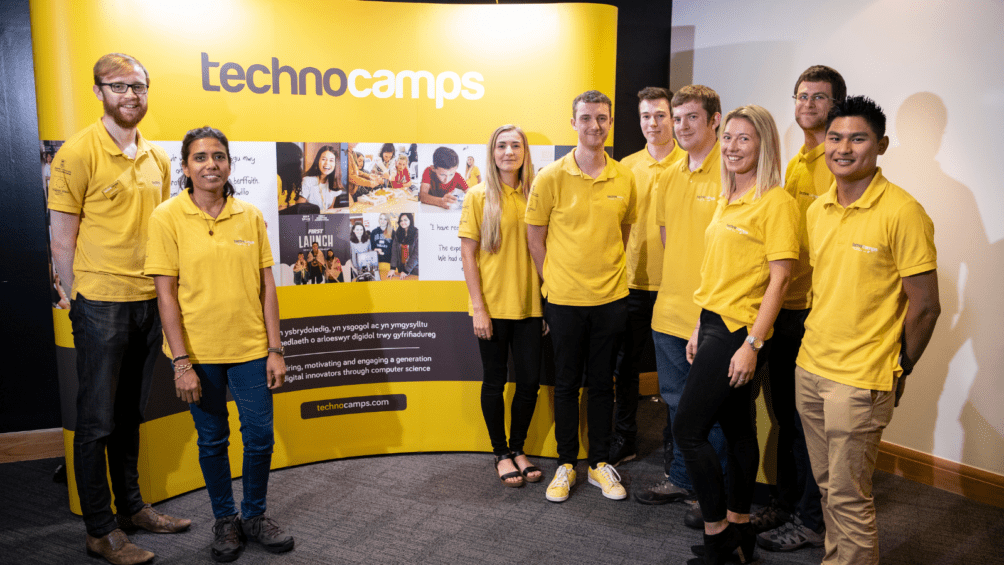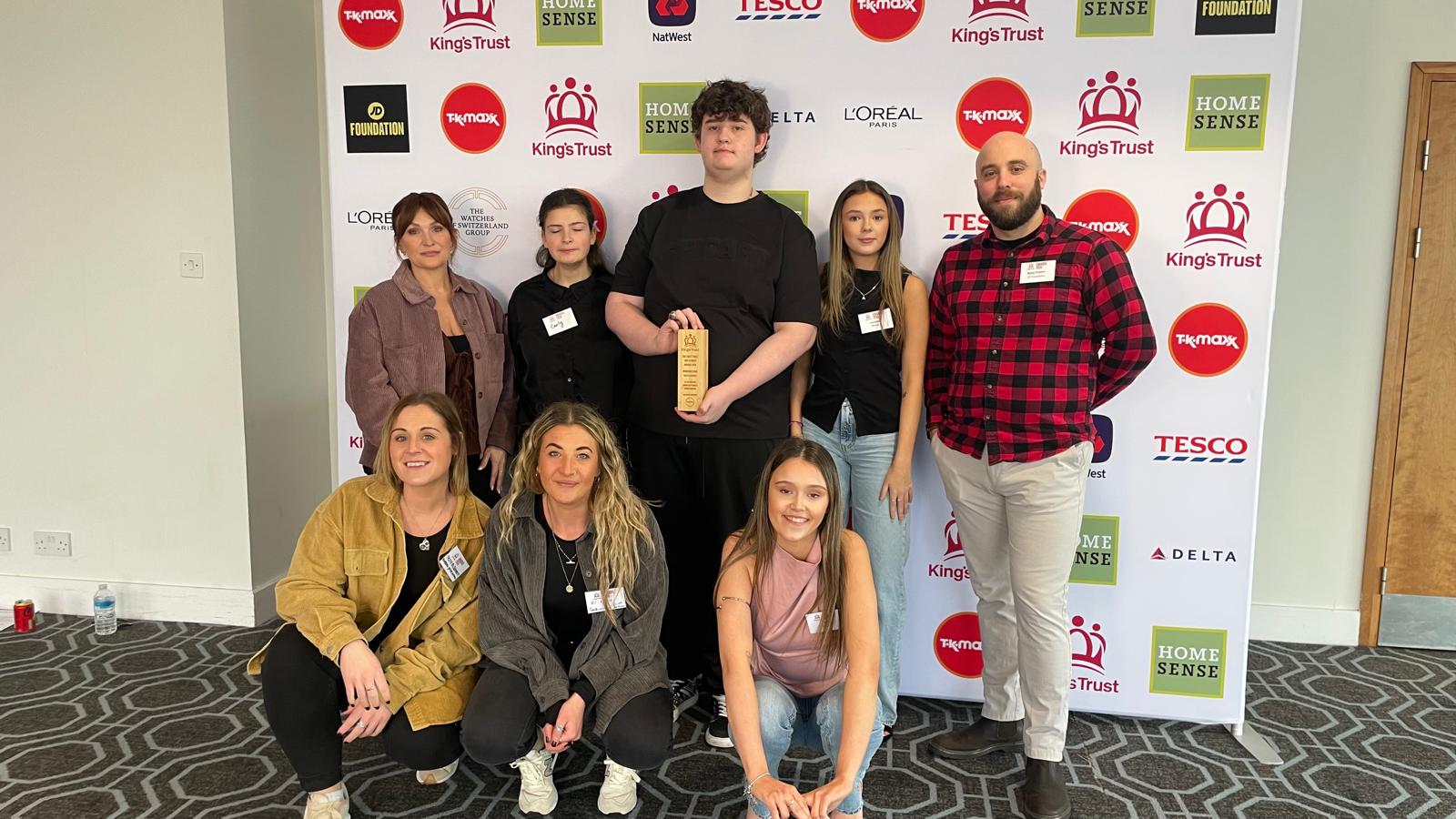Education
How Technology Is Enabling New Ways of Writing

Technology has altered almost every aspect of our lives, including writing. Technology continues to alter how we create, distribute, and read written information – from typewriters and computers to sophisticated digital platforms and software – this article looks at how technological advancements are making writing more accessible, creative, collaborative, and improving quality. For receiving reliable writing help visit essayservices for honest review!
Digital Tools for Writing
One of the major impacts of technology on writing is accessing digital tools that enhance and streamline its process. Traditional pen and paper have given way to word processors like Microsoft Word and Google Docs, with features like grammar check, spell check and formatting choices; these resources help authors produce crisper works while streamlining their writing process. For more tools, ask “is papercoach safe?”.
Scrivener and Ulysses provide authors with tools for managing complicated projects, like scripts and novels. These programs make it simple for writers to plan, draft, reorganize, and rewrite parts of their work, promoting an efficient writing process.
Software Enhances Creativity
Technology has also given us access to software designed to foster creativity. Writers may always have inspiration close at hand using apps like Evernote and OneNote, which allow them to jot down ideas, brief text passages, and research materials while on the road. Mind mapping programs like MindMeister and XMind help authors generate intricate storylines and concepts more easily by aiding the imagination and visualization of complex stories or ideas.
Artificial Intelligence (AI) has also had an impactful influence on creative writing. OpenAI-developed tools, like GPT-4 from OpenAI Labs, offer material production and enhancement suggestions and aid writers in overcoming writer’s block. AI platforms like this one provide writers with fresh motivation and support, making creative expression even greater.
Collaboration and Connectivity
Writing was once a solo pursuit, but thanks to the Internet, it’s much more communal. Real-time collaboration is enabled through platforms such as Google Docs, which allows multiple users to collaborate on documents simultaneously. Writers can instantly receive comments, share their work with colleagues, and edit as needed. This collaborative atmosphere strengthens ties among authors while improving output quality overall.
Thanks to social media and blogging services like Medium and WordPress, authors now have instant readership. Authors gain access to global reader engagement, criticism, publication opportunities, and reader criticism, increasing their readership and opening doors for discussion and the development of their writing careers.
Accessibility and Inclusivity
Thanks to technology, writing has never been more accessible to those with impairments. Speech-to-text programs like Dragon NaturallySpeaking make writing accessible for those who find typing by hand difficult. In contrast, text-to-speech devices in modern e-readers make reading material easy for those with visual impairments.
Writing workshops and online courses have made writing education more accessible than ever, with services like Coursera, Udemy, and MasterClass offering quality writing instruction from well-known authors and educators.
Improving Writing Quality
Technology has dramatically advanced writing standards with sophisticated editing tools like Grammarly, Hemingway Editor, and ProWritingAid that evaluate text for readability, style, and grammar and provide recommendations for enhancement. By employing these techniques, authors can increase the clarity and consistency of their writing while plagiarism detection programs like Turnitin and Copyscape ensure the uniqueness of authored materials and proofread their work against accidental plagiarized elements to ensure its originality.
Self-Publishing Opportunities
With more writers having greater freedom to reach readers through their writing, digital publishing platforms have completely changed the publishing landscape. Authors may now access a worldwide public for their writings through self-publishing platforms like Amazon Kindle Direct Publishing, Smashwords, and IngramSpark, rather than depending only on established publishing houses to have their work noticed. Nowadays, authors handle every step of the publishing process, including their own writing, editing, sales, and marketing!
Writing for Diverse Media
Thanks to technology, writing has become more widely utilized than conventional print media. These days, writers provide material for video games, podcasts, blogs, social media, and even video screenplays. Each medium and audience demands different strategies and techniques; for instance, writing social media requires succinctness and interactivity, while scripting interactive storylines requires script writing skills. As writers adapt to these diverse mediums, they are constantly expanding their skill sets and exploring new ways to engage with audiences.
Writing’s Future
Technology advances promise writing a bright future. Augmented and virtual reality (AR/VR) technologies could revolutionize narrative; writers could soon craft three-dimensional stories where readers interact directly with characters and settings.
Blockchain technology could revolutionize writing industry royalties and intellectual property rights. Authors’ intellectual property could be protected transparently and securely via smart contracts on blockchain systems, guaranteeing they receive fair compensation for their labor.
Conclusion
Technology has revolutionized the literary landscape. Thanks to digital tools and platforms, authors now have greater freedom to express themselves creatively while working collaboratively on higher caliber works. Writing will only advance further as technology progresses, giving authors access to new audiences while exploring uncharted territory – writing’s future looks bright with tech leading this exciting development!
Education
Industry insight helps marine cadets chart career course

Shipping professional visits Pembrokeshire College to showcase real-world opportunities on the Milford Haven Waterway
STUDENTS training for careers at sea were given a first-hand look at life in the maritime industry after a leading shipping professional visited Pembrokeshire College to share his experience of operations on the Milford Haven Waterway.
Toby Forester, from Williams Shipping, met with the College’s Enhanced Marine Engineering Pre-Cadets to explain how commercial shipping, marine services and logistics work together to keep one of the UK’s busiest energy ports moving.

Learners heard about the wide range of activity taking place daily on the estuary, including vessel movements, specialist support craft, safety management and the coordination required to operate safely and efficiently in a working port environment.
Staff said the session gave students valuable real-world context, helping them understand how the engineering skills they develop in workshops and classrooms directly translate into careers within the maritime and energy sectors.
The visit forms part of the College’s wider effort to strengthen links between education and industry, ensuring young people are exposed to employers and career pathways while still in training.
College representatives said experiences like this help build confidence and ambition among learners considering technical roles at sea or ashore.
They thanked Williams Shipping and Mr Forester for supporting the next generation of marine engineers and helping inspire future talent in Pembrokeshire’s coastal economy.
Photo caption: Marine engineering pre-cadets at Pembrokeshire College welcomed an industry talk from Williams Shipping about operations on the Milford Haven Waterway (Pic: Supplied).
Education
Funding axe falls on Welsh digital education scheme as £1.4m handed to English uni

Face-to-face training replaced with online resources in decision branded a ‘slap in the face’ for Wales
A LONG-RUNNING Welsh digital education programme that has trained thousands of teachers and pupils every year is facing an uncertain future after Welsh Government funding was cut and redirected to an English university.
Technocamps, a Swansea University-based project which has operated across Wales for twenty-two years, has described the decision as a major blow to digital skills development, with staff already losing jobs and schools left without in-person support.
Instead of renewing Technocamps’ funding, ministers have awarded £1.4 million under the Curriculum for Wales Grant Support Programme to the University of York to deliver mainly online learning resources, with only limited face-to-face sessions in what are described as “priority areas”.
Critics say the move risks replacing hands-on, bilingual classroom support with generic remote materials.
Each year Technocamps provides direct training to more than 900 teachers and delivers workshops to over 30,000 young people in schools across Wales, working face-to-face with pupils to improve coding, computing and digital literacy.
The programme has been widely credited with helping schools meet the growing demands of the Curriculum for Wales and tackling shortages in specialist computing skills.
‘Bitter disappointment’
Plaid Cymru MS Sioned Williams, who represents South Wales West, said she had met the Technocamps team again this month and would be writing to the Cabinet Secretary for Education seeking answers.
She said: “The necessity of good quality, face-to-face digital skills training has never been more important in this digital age.
“I’ve seen firsthand how engaging and effective a Technocamps workshop is and what makes this programme so great is that it is made in Wales, delivered bilingually through our network of universities and is able to reach every school and teacher.
“That’s why the news that Welsh Government has cut funding is so bitterly disappointing.
“At a time when Welsh universities are in financial crisis, it’s an additional slap in the face that what little funding has been allocated has gone to a university in England.”
Jobs lost across Wales
Beti Williams MBE, the programme’s founder and patron, said the funding decision had already resulted in redundancies.
She said: “The end of Technocamps funding has led to the unemployment of teacher trainers at universities across Wales, leaving nearly 1,000 school teachers who rely on our bespoke in-person training and support in limbo.
“Replacing Technocamps with predominantly standard online courses is an insult to Welsh universities. Online courses, of which there is unlimited choice, offer nothing to struggling teachers who rely on tailored, face-to-face help.”
A petition calling for funding to be restored has gathered more than 4,000 signatures and is now being considered by the Senedd Petitions Committee.
Questions over value for money
The decision has also raised questions about value for money.
According to supporters, the £1.4m grant awarded to York is almost double Technocamps’ previous annual funding, yet delivers fewer in-person services.
There are also concerns that only seven per cent of the wider Curriculum for Wales grant funding over the next three years is allocated to science and technology subjects.
Education campaigners warn that reducing practical support in computing and digital technology could widen skills gaps at a time when Wales is trying to attract high-tech industries and improve economic productivity.
Digital divide fears
Teachers have long argued that in-person training is essential, particularly for schools with limited IT expertise or rural connectivity challenges.
Technocamps staff say online-only provision risks leaving some schools behind.
Ms Williams added: “It’s so important that we keep this crucial skills and knowledge in Wales. The thought that we could lose this valuable resource makes no sense at a time when the need for digital competency has never been greater.”
Welsh Government has been asked to explain why the funding was awarded outside Wales and whether the impact on Welsh university jobs and school support was assessed before the decision was made.
Community
Haverfordwest students win national King’s Trust honour

Community mural project earns Wales title and trip to London finals
A GROUP of young people from Haverfordwest High School are celebrating a major achievement after being crowned Wales country final winners at the King’s Trust Awards 2026.
The students secured the JD Foundation Community Impact Award and will now represent Wales at the King’s Trust National Awards in London.
The award recognises an outstanding community project delivered through the King’s Trust Achieve Programme, a Key Stage four GCSE option offered at the school and delivered locally by Pembrokeshire Youth Service.
Led by school-based youth worker Ell Lewis, the programme supports pupils who may find traditional academic routes challenging, including those facing emotional, social or caring responsibilities.
As part of their Community Impact project, the group identified a vandalised pedestrian tunnel in Haverfordwest that is used daily by students travelling to and from school. Determined to improve the space, they worked together to design and paint a large-scale mural celebrating wellbeing, identity and local pride.
The once run-down underpass has now been transformed into a colourful and welcoming feature, drawing praise from residents and passers-by.
Community members described the artwork as uplifting and inspiring, with many noting the positive difference it has made to young people using the route each day.
One participant said: “This project is our legacy. We’ve created something lasting that represents who we are and where we come from. It’s amazing what a cup of tea and a conversation can lead to.”
Mr Lewis said the benefits extended far beyond the finished mural.
He said: “Beyond its physical impact, the project has helped the young people build confidence, teamwork, leadership and communication skills. Their courage, resilience and ambition can’t be faulted. I am incredibly proud of them. All members of the group have since progressed into further education or employment.”
The students secured funding through the Pembrokeshire Youth Bank Grant and received support from local businesses including GD Harris & Sons. They also worked with local councillors, the local authority and local artist Lloyd Griffiths.
Additional funds were raised through school-led activities including bake sales and raffles.
The group will now travel to London to compete in the national finals, representing both their school and Pembrokeshire on a national stage.
Cover photo:
Proud moment: Members of the Haverfordwest High School group at the Wales King’s Trust Awards ceremony (Pic: Supplied).
-

 Health4 days ago
Health4 days agoConsultation reveals lack of public trust in health board
-

 News6 days ago
News6 days agoCaldey still unsafe, survivors warn — despite Abbey’s reform claims
-

 Community5 days ago
Community5 days agoPembrokeshire students speak at national Holocaust Memorial Day event
-

 News5 days ago
News5 days agoKurtz raises Gumfreston flooding in the Senedd as petition deadline nears
-

 Entertainment6 days ago
Entertainment6 days agoRapunzel brings festive magic to Torch Theatre
-

 Crime6 days ago
Crime6 days agoMan denies murdering brother as jury hears of ‘ferocious attack’ at Morriston flat
-

 Community7 days ago
Community7 days agoStorm Chandra: Morning impacts across Pembrokeshire
-

 Education5 days ago
Education5 days agoAttendance concerns at Milford School reflect wider issue raised at the Senedd

















